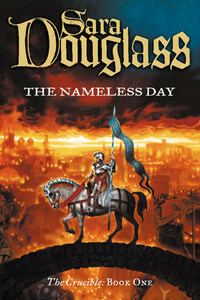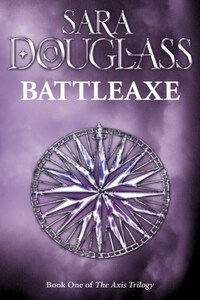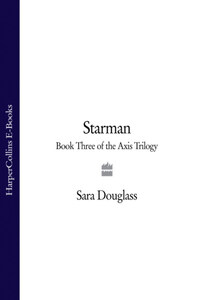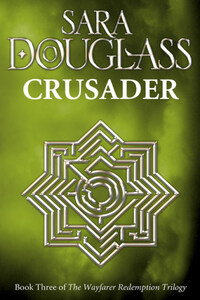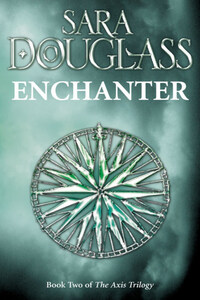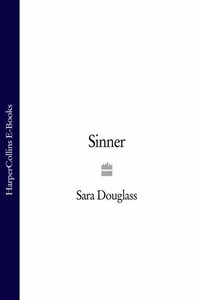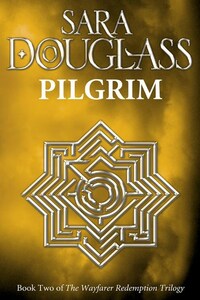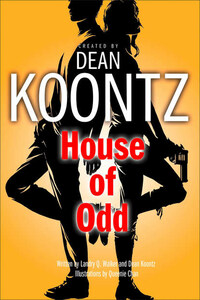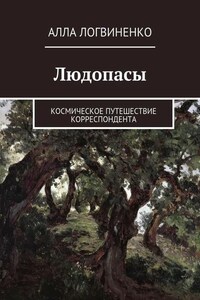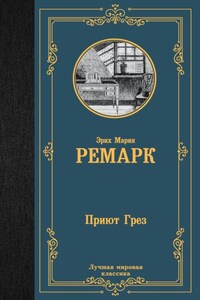In memory of my most devoted fan,
MICHAEL GODWIN
10th September 1981 â 16th March 1998
Time travel is not only theoretically possible, travel into our future has already been achieved (albeit on a tiny scale of a few seconds or minutes). Travel into our past is more problematic. How would interfering with our past affect our present? Some physicists argue that sending someone into the past creates a âparallel universeââthe mere presence of someone in a past time alters that worldâs future to such an extent that a different future is necessarily created: a parallel universe (or world) to the one we live in.
The three books of âThe Crucibleâ are set, not in the medieval Europe of our past, but in the medieval Europe of a parallel universe: the insertion of even one fictional character amongst a host of historical characters necessarily creates that parallel world. Thus, while there are many similarities between our past and the world of âThe Crucibleâ, there are also many differences. The entire period of the Hundred Years War, for example, has been compressed so that the Battle of Poitiers is fought at a later date than in our past, and Joan of Arc appears at an earlier date.
Although some dates and âfactsâ have altered, the spirit of âThe Crucibleâ remains identical to that of our medieval Europe. Something strange happened in the fourteenth centuryâ¦something very, very odd. The fourteenth century was an age of unprecedented catastrophe for western Europe: widespread famine due to climate change, economic collapse, uncontrollable heresies, social upheaval, endemic war and, to compound the misery, the physical and psychological devastation of the Black Death. In all of recorded history there has never been before or since a period of such utter disaster: one half of Europeâs population died due to the effects of famine, war and the Black Death. As a result, Europeans emerged from the fourteenth century profoundlyâand frighteninglyâchanged. Medieval Europe had been an intensely spiritual society: the salvation of the soul was paramount. Post-fourteenth century Europe abandoned spirituality for secularism, materialism and worldliness. Its peoples embraced technology and science, and developed the most aggressively invasive mentality of world history. Why this profound shift from the internal quest for spiritual salvation to a craving for world domination? Was it just the end result of over a hundred years of catastropheâ¦or was there another reason?
âThe Crucibleâ presents an explanation couched in a medieval understanding of the world rather than in terms more familiar to our modern sensibilities. Medieval Europe was a world of evil incarnate, a world where demons and angels walked the same fields as men and women; a world where the armies of God and of Satan arrayed themselves for the final battleâ¦we now live in the aftermath of that battle, but are we sure who won?
Sara Douglass
Bendigo, 2000
The Friday within the Octave of All Saints
to the Nameless Day
In the twenty-first year of the reign of Edward III
(7th November to Tuesday 23rd December 1348)
âSt Angeloâs Friary, Romeâ
âBrother Wynkyn? Brother Wynkyn? Sweet Jesu, Brother, youâre not going to leave us now?â
Brother Wynkyn de Worde slapped shut the weighty manuscript book before him and turned to face Prior Bertrand. âI have no choice, Bertrand. I must leave.â
Bertrand took a deep breath. Sweet Saviour, how could he possibly dissuade Brother Wynkyn?
âMy friend,â he said, earning himself a sarcastic glance from Wynkyn. âBrother Wynkynâ¦the pestilence rages across Christendom. If you leave the safety of Saint Angeloâsââ
âWhat safety? Of the seventeen brothers who prayed here five weeks ago, now there is only you and me and two others left. Besides, if I choose to hide within these âsafeâ walls a far worse pestilence will ravage Christendom than that which currently rages. I must go. Get out of my way.â
âBrother, the roads are choked with the dying and the brigands who pick their pockets and pluck the rings from their fingers.â Prior Bertrand moderated his voice, trying to reason with the old man. Brother Wynkyn had ever been difficult. Bertrand knew that Wynkyn had even shouted down the Holy Father once, and Bertrand realised there was no circumstance in which he could hope for respect from someone who was powerful enough to cow a pope. âHow can you possibly overcome all the difficulties and the dangers roaming the roads between here and Nuremberg? Stay, I beg you.â
